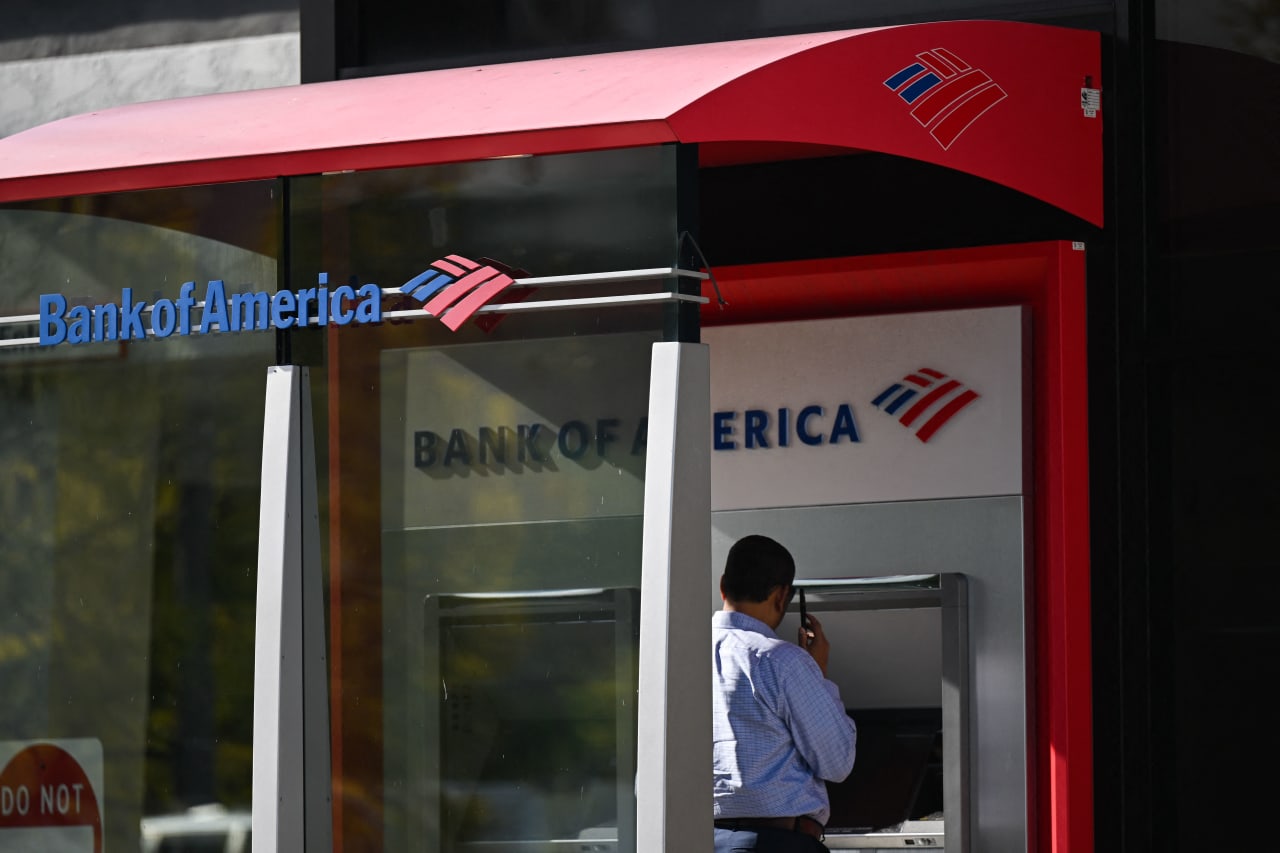Preventing the Rising Threat of Financial Fraud
Corporations and banks have boosted their security infrastructure and employee training to avoid getting hit by financial fraud, including cybercrime, but individuals and families often are less prepared and, as a result, are a softer target for criminals.
“They’re not giving due consideration to the scores of ways they’re vulnerable and fraud can happen,” says Mona Manahi, head of personal CFO services for Geller, an independent multi-family office firm.
Several stats back this up, including a 30% rise in consumer scams reported by the Federal Trade Commission and a rise in mail fraud by criminals getting access to credit cards and checks reported by the U.S. Postal Service this past spring. A UBS survey found 63% of U.S. family offices reported being targeted by cyber threat actors.
The “great wealth transfer” to a younger generation is also putting large amounts of cash into the hands of millennials and Generation Z, “and they tend to be a little bit more lax in their trustworthiness,” Manahi says, citing how much younger people share information on social media and use electronic payment services.
“What’s happening now feels like a big paradigm shift, and people really need to pay attention,” she says. “It’s like a perfect storm.”
But families can protect themselves often with simple steps, such as wiring big amounts of money through credible financial institutions instead of putting a check in the mail. Manahi and Scott Bush, Geller’s chief client officer, detailed a range of fraud-prevention measures recently with Penta.
Avoiding Cyber Threats
The rise of technology in people’s lives has given criminals more sophisticated ways of commiting crimes, enabling them to target wealthier individuals and families.
A decade ago, criminals might have put a skimmer on a gas station credit card machine to glean data from just about anyone. Today, criminals break into household wireless networks to access email and phone communications that tell them where a family spends money, why they spend it, and where they can find pools of capital to tap, Bush says.
“What’s changed is that the more organized, very high-quality criminal networks have started to realize that they get better bang for the buck if they focus on ultra-high-net-worth families,” Bush says.
Most families allow all their personal financial information to be accessed through the same wireless network they use for watching Netflix or checking email, believing it’s safe because the network is password protected.
“What they often don’t think about is when their children give that same password out to that server to their friends so they can use the Wi-Fi or they plug in the gaming console or they allow all of the people that are helping them maintain the house access to the Wi-Fi so that they can plug their phone in when they’re working at the house,” Bush says.
A simple way to avoid a password getting into the wrong hands is to have two networks in the house, one for personal financial information and another for access to wireless services that anyone can use.
Also, despite lots of education on the topic, most people continue to create weak passwords that criminals can easily decipher, especially once they’ve learned the names of family pets and children, or other personal details.
“If you can focus on securing your household and securing how you manage your personal information, there’s a high likelihood that bad guys just will decide to go somewhere else,” Bush says.
Breaking the ‘Fraud Triangle’
Wealthy families often believe they can keep tight control over their finances if fewer people are involved. But that strategy can lead easily to theft that can go undetected for years. This past December, for instance, a 74-year-old Texas woman pleaded guilty to a scheme of embezzling at least US$29 million from a Dallas charitable foundation and other companies owned by a family, according to the U.S. Department of Justice.
Manahi brings up this incident in an article for Geller on how families can lower their risks by breaking “the fraud triangle,” a term coined by a Brigham Young professor Steve Albrecht decades ago to refer to the three elements needed to execute a fraud: motive, opportunity, and rationalization. Families can’t address a criminal’s motive or rationalization, but they can remove the opportunity. That greatly reduces the potential for fraud, Manahi says.
Often, that means not giving a single personal assistant, or bookkeeper in the Dallas case, too much access or authority to your finances. One of the simplest controls families can put in place is “segregation of duties,” she says. For example, don’t allow one person to have authority to set up a vendor for payments, execute on those payments, and then reconcile the movement of cash in a checking account.
“Regardless of what their structure is, [every family] should have a very clear set of protocols related to how capital moves,” Bush adds. There should be double or even triple authentication for cash transfers, and everybody who works with the family should be aware of “who has the right to move capital and where it might move to.”
Families should also create an employee manual that clearly outlines security and safety protocols. “Just letting [employees] know that there is awareness, that security is an issue, and they are accountable for it is a great way of creating an environment that is secure,” he says.
Also, families should put systems and processes in place to consistently track where money is spent, how it’s spent, and how it relates to a predetermined budget. Then you or an employee can flag when things are out of line. The idea is to show that “the family cares and that at any time, activity can be inspected,” Bush says.
Even the most diligent families can let down their guard during the summer months or the winter holidays, particularly when they are traveling to far-away or remote locations, which is not unusual for a wealthy family. “They’ll be on safari and all of a sudden there’s a flurry of activity in their account when they’re not available,” Bush says.
Having formal protocols in place to ensure no single person can move money will help. Any protocols should also include instructions for what to do in case of an unusual transaction.
“Not only segregating the responsibilities during that time, but also educating [employees] on what they should be looking for and reviewing and increasing their responsibility during that time,” Manahi says.
 Copyright 2020, Dow Jones & Company, Inc. All Rights Reserved Worldwide. LEARN MORE
Copyright 2020, Dow Jones & Company, Inc. All Rights Reserved Worldwide. LEARN MORE
This stylish family home combines a classic palette and finishes with a flexible floorplan
Just 55 minutes from Sydney, make this your creative getaway located in the majestic Hawkesbury region.
When will Berkshire Hathaway stop selling Bank of America stock?
Berkshire began liquidating its big stake in the banking company in mid-July—and has already unloaded about 15% of its interest. The selling has been fairly aggressive and has totaled about $6 billion. (Berkshire still holds 883 million shares, an 11.3% interest worth $35 billion based on its most recent filing on Aug. 30.)
The selling has prompted speculation about when CEO Warren Buffett, who oversees Berkshire’s $300 billion equity portfolio, will stop. The sales have depressed Bank of America stock, which has underperformed peers since Berkshire began its sell program. The stock closed down 0.9% Thursday at $40.14.
It’s possible that Berkshire will stop selling when the stake drops to 700 million shares. Taxes and history would be the reasons why.
Berkshire accumulated its Bank of America stake in two stages—and at vastly different prices. Berkshire’s initial stake came in 2017 , when it swapped $5 billion of Bank of America preferred stock for 700 million shares of common stock via warrants it received as part of the original preferred investment in 2011.
Berkshire got a sweet deal in that 2011 transaction. At the time, Bank of America was looking for a Buffett imprimatur—and the bank’s stock price was weak and under $10 a share.
Berkshire paid about $7 a share for that initial stake of 700 million common shares. The rest of the Berkshire stake, more than 300 million shares, was mostly purchased in 2018 at around $30 a share.
With Bank of America stock currently trading around $40, Berkshire faces a high tax burden from selling shares from the original stake of 700 million shares, given the low cost basis, and a much lighter tax hit from unloading the rest. Berkshire is subject to corporate taxes—an estimated 25% including local taxes—on gains on any sales of stock. The tax bite is stark.
Berkshire might own $2 to $3 a share in taxes on sales of high-cost stock and $8 a share on low-cost stock purchased for $7 a share.
New York tax expert Robert Willens says corporations, like individuals, can specify the particular lots when they sell stock with multiple cost levels.
“If stock is held in the custody of a broker, an adequate identification is made if the taxpayer specifies to the broker having custody of the stock the particular stock to be sold and, within a reasonable time thereafter, confirmation of such specification is set forth in a written document from the broker,” Willens told Barron’s in an email.
He assumes that Berkshire will identify the high-cost Bank of America stock for the recent sales to minimize its tax liability.
If sellers don’t specify, they generally are subject to “first in, first out,” or FIFO, accounting, meaning that the stock bought first would be subject to any tax on gains.
Buffett tends to be tax-averse—and that may prompt him to keep the original stake of 700 million shares. He could also mull any loyalty he may feel toward Bank of America CEO Brian Moynihan , whom Buffett has praised in the past.
Another reason for Berkshire to hold Bank of America is that it’s the company’s only big equity holding among traditional banks after selling shares of U.S. Bancorp , Bank of New York Mellon , JPMorgan Chase , and Wells Fargo in recent years.
Buffett, however, often eliminates stock holdings after he begins selling them down, as he did with the other bank stocks. Berkshire does retain a smaller stake of about $3 billion in Citigroup.
There could be a new filing on sales of Bank of America stock by Berkshire on Thursday evening. It has been three business days since the last one.
Berkshire must file within two business days of any sales of Bank of America stock since it owns more than 10%. The conglomerate will need to get its stake under about 777 million shares, about 100 million below the current level, before it can avoid the two-day filing rule.
It should be said that taxes haven’t deterred Buffett from selling over half of Berkshire’s stake in Apple this year—an estimated $85 billion or more of stock. Barron’s has estimated that Berkshire may owe $15 billion on the bulk of the sales that occurred in the second quarter.
Berkshire now holds 400 million shares of Apple and Barron’s has argued that Buffett may be finished reducing the Apple stake at that round number, which is the same number of shares that Berkshire has held in Coca-Cola for more than two decades.
Buffett may like round numbers—and 700 million could be just the right figure for Bank of America.
This stylish family home combines a classic palette and finishes with a flexible floorplan
Just 55 minutes from Sydney, make this your creative getaway located in the majestic Hawkesbury region.






















